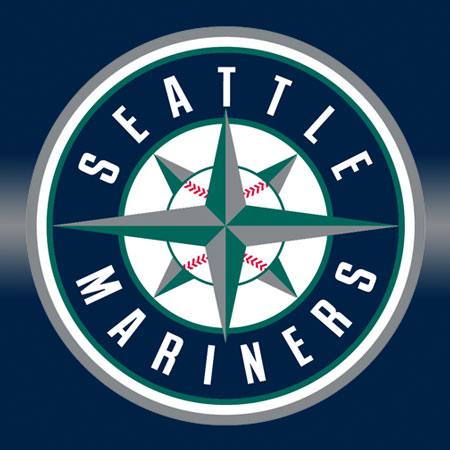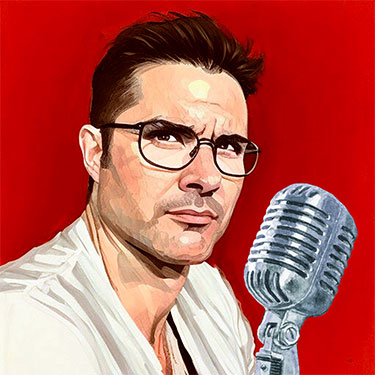Archive: September, 2024
State of the M's

Tonight was the last Friday of the baseball season, and thus Fan Appreciation Night down at the ol' ballpark. Many prizes are given away at Fan Appreciation Nights, but in decades of attendance I have yet to get one. (Though my seats did get one some years back, but it wasn't the one I was sitting in, Bill got it, winning a suite for a game the following April. I and some mutual friends went with him, so it's sort of like winning a prize, I suppose.) I didn't win anything tonight, either, but the Mariners did eke out a victory over the Oakland-for-two-more-days Athletics.
Not that it mattered, as the M's were eliminated from postseason contention yesterday. The entire American League playoff field was set before tonight's first pitch, and most of the National League field as well (the remainder there may well still be in flux after Sunday's games are done as the currently-in-a-three-way-tie-with-Arizona-for-two-slots Mets and Braves have a makeup doubleheader to play on Monday). Still, it was a nice evening and Bryan Woo pitched a great game.
But as we come to the end of the 2024 campaign, some thoughts on the state of the Mariners:
Much was made about the Mariners' rebuild following the 2018 season having the goal of contention within three years. Despite the COVID-truncated season of 2020, they basically achieved that, winning 90 games in ’21 and then again in ’22, making the ’22 postseason thanks to the dumb expanded Wild Card system we're now stuck with. Last year the M's were alive until the final day of the season, finishing one game back of the last WC berth with 88 wins. All of which was utterly astounding when you think about it; how they won that many games with lineups that put up truly atrocious numbers not just once, but three years running, is downright weird.
Then-manager Scott Servais got a lot of credit—undeservedly—for those win totals. The thinking seemed to be, "wow, how good is Servais, look what he did with an offense that was at or near the bottom of the league rankings." But that was backwards. You look at those teams in the preseasons and you'd figure them to be far better than they turned out to be; maybe not World Series-caliber lineups, but certainly playoff quality in today's expanded-postseason universe. The real evaluations should have been, "wow, how bad is Servais, look how few runs his teams scored despite that group of players. If not for that incredible pitching staff he'd be lucky to sniff .500." It took until three-quarters of the way through this season for the club's top brass to figure out that the way Servais ran things was never going to work. You can't get a lineup to hit when you essentially tell all your batters to emulate the late Joaquin Andujar—an All-Star pitcher in the 1980s who's approach with the bat was "swing hard in case you hit it"—and make your goals about "launch angles" and "barrel rates." Good pitching can take you a long ways, but you still have to score more runs than the other guys.
The post-’18 rebuild, which went on through the short 2020 season, was supposed to form a core of players who would mature into a contending team with a solid window of opportunity lasting at least five years, after which time some or all of that core will have become financially burdensome. That window might be starting to close now, but some of those supposedly core players are already gone, given up for failures after underachieving with the broken Servais regime: Ty France is a Cincinnati Red and was doing quite well until going into a slump in the last two weeks (.312/.358/.475 as a Red through Sept. 10th, 7-for-50 since then). Jarred Kelenic, who may have been forever ruined by the Mariners' handling and rushing of his development time or might have been a bust regardless, is an Atlanta Brave relegated to their bench. Injury-plagued Kyle Lewis might never play in the bigs again, but if he does it'll be with the Diamondbacks. Lewis was just one of those prospects that couldn't get healthy. Kelenic may or may not be one of those personalities that just wouldn't ever succeed in the Majors. Cutting bait with them is understandable. Losing France was just plain stupid, but I wonder if that move was requested by Servais or a misstep by the higher-ups based on a performance that they didn't understand was being hampered by Servais and his alleged hitting coach, Jarret DeHart.
Anyway, there's still plenty of talent on the club to continue and even expand the window of opportunity. President of Baseball Ops Jerry Dipoto has, aside from dealing France away, done fairly well in adjusting personnel as needed, and with a young starting rotation that could remain together for another few years (possibly sans Luis Castillo) even an average lineup should be able to contend. Most importantly, Servais and DeHart were finally shown the door, which if nothing else is addition by subtraction. Things actually look better than they have in 20+ years for the Seattle Mariners going into 2025.
Biggest offseason questions for the M's:
- Does Edgar stay? Edgar Martínez only agreed to return as batting coach for the remainder of 2024. Can manager Dan Wilson talk him into staying on? If not, who becomes the batting coach? The four-plus years of DeHart showed how unequivocally necessary a competent batting coach is, so if Edgar does not choose to stick around, this is their biggest "free agent" need. They need someone with a lot of pro hitting experience, preferably someone who had to work for his successes over a long career. I don't know if Terry Pendleton would be interested, he is in his 60s now, but he'd be an interesting ask. Ditto Milt Thompson. Raúl Ibañez seems more interested in front-office gigs than coaching, but I wonder if he'd be a good batting coach? I mean, so long as he doesn't take up that disgusting chewing tobacco habit again.
- Who's on first? Having thrown Ty France away for whatever dumb reasons, first base is now essentially vacant, having been manned down the stretch this year by rental player Justin Turner and outfielder Luke Raley. Raley could potentially transition into a regular fixture at 1B, but defense would be lacking in that case. Is young Tyler Locklear a viable option? He flopped in a short stint with the M's this year, but has OK-to-decent numbers at Triple-A, especially on-base percentage (.371, 70 games), after great ones at Double-A (.291/.401/.532, 41 games). Seems to me a full year at Triple-A would be in order, but the M's do like to rush guys.
- Jorge Polanco: Cut or don't cut? The second baseman's contract has a team option for 2024 at his same $12M salary, or that option can be bought out for $750k. Personally, I'd choose to buy out the option and use the money elsewhere, then use Spring Training as a tryout camp for the position. If he's healed up from his Achilles injury, try switch-hitting Sam Haggerty there. He can compete with Ryan Bliss, Leo Rivas, and the somehow-still-in-the-mix Dylan Moore and maybe some non-roster invitees from the big-league scrap pile.
- OF logjam: You know Jerry Dipoto is going to trade somebody, he always does. Seems likely that someone from the outfield mix will be dealt somewhere as there's a surplus with Julio Rodríguez, Randy Arozarena, Victor Robles, Mitch Haniger, and Raley on the big-league roster and Dom Canzone, Cade Marlowe, and Samad Taylor at Triple-A. Julio and Victor aren't going anywhere, so Haniger and Arozarena appear to be the likeliest to move; Arozarena would have the most value despite his down year in ’24. A return could be sought in a first- or third-baseman or prospects.
Just having a real batting coach and a manager that doesn't leave his brain in the clubhouse for an entire season will elevate the M's considerably from their disappointing 2024. They could make no moves at all and that would be enough to contend. But moves will be made, a budget will be dictated, some things will change. I just expect them to be relatively minor.

The Edgar Effect

Edgar Martinez, back as Seattle batting coach (and not a moment too soon)
It's now been nearly a month—25 days, to be exact—since the Seattle Mariners finally got around to firing their manager (Scott Servais) and alleged hitting coach (Jarret DeHart) and replacing them with former Mariner players Dan Wilson and Edgar Martinez, respectively. I said at that time that despite their poor standing the change made me more bullish on the potential of the Mariners making the postseason than I'd been in months, and now, after 25 days, how are things looking?
Well, not great. But a better grade of not-great than before, to be sure.
Currently, the M's are four games over the .500 mark and 2 games out of a postseason berth (the ridiculous third Wild Card) with 12 games left to play. When Wilson took over, the team was at .500 and five games back of playoff standing. So it is marginally better, but time is running out, and it would still be a bit of an upset if they managed to get into the October tournament.
But the difference aside from the standings isn't marginal, it's enormous.
That improvement is, naturally, in the offense. Edgar taking over from the woefully ill-equipped DeHart as batting coach has changed the whole way of thinking for the team, away from the stupid stuff like launch angles and barrel rates and back toward the important things like contact and situational awareness. Here's a very simple stat to show the change in attitude:
Under Servais/DeHart: 18 sacrifice flies (128 games)
Under Wilson/Martinez: 11 sac flies (22 games)
That's a 500% increase in the simple act of getting a runner home from third base with a fly ball. Productive outs in general has been a key point in Edgar's tutelage so far, which you'd think would be a basic, known element for batters, but under DeHart the very idea was apparently discouraged.
But it isn't just making better outs that's improved, far from it. All team batting stats have been raised since Edgar came back to the dugout:
Team slash line under Servais/DeHart: .216/.301/.365
Team slash line under Wilson/Martinez: .254/.354/.416
Runs per game? Up from 3.9 to 5.2. Hits per game, walks per game, RBI per game, doubles per game, homers per game, all up. And strikeouts per game are down, though not significantly yet thanks to one 17-K game against the Rays; if you take that outlier out of the mix, Ks per game are down from 10.2 to 8.6. Still a ways to go on that front, but the way the rest of it is trending, that'll come in time.
Certain individual batters have gotten impressive results from consulting with the Hall of Famer, most notably Julio Rodríguez, Mitch Garver, and Luke Raley. Before the regime change, Julio was batting .260/.310/.364. Since the changeover, he's batting .278/.356/.489. It's the middle number, the on-base, that really stands out to me. Garver was having the absolute worst year of his career, and with no one to turn to for help was just getting worse and worse; he was at a miserable .165/.287/.327 under the old guard. With Dan and Edgar, his line is .267/.353/.433. Yes, only 34 trips to the plate, but what a difference. Then there's Raley, who had started out strong in the early season—a high-water mark of .301 in late May—before slumping down into the .220s. What's he done since Dan and Edgar took over? .304/.403/.679 with 15 RBI.
Victor Robles is another guy with huge numbers since Dan and Edgar arrived, but he's been the best hitter on the club basically since he got to Seattle at the beginning of June so it's not as clear that it's an Edgar influence. Still, check it out—Pre-Dan and Edgar: a very good .280/.340/.413; since Dan and Edgar: an astonishing .473/.546/.636.
Other guys aren't seeing big bumps in their numbers, but still some things of note, e.g. Cal Raleigh's average is still anemic, but his on-base mark has gone from a pre-change .303 to a since-then .341; newcomers Randy Arozarena and Justin Turner weren't around long during the Servais/DeHart time, so the comparison doesn't track, but Arozarena's slugged 100 points higher since the change and Turner's post-change slash is a stellar .290/.386/.464.
The Mariners as constructed throughout the year have had plenty of talent in their lineup, they were simply underachieving. Guys who were slumping or falling into bad habits had no one in-house to go to for help and things never got any better. Now they do. And we're starting to see who they really are.
It might be too late for 2024, but it bodes well for 2025.
2 Comments
Demolition derby

I had umpiring to do last night, so it wasn't until the wee hours of this morning that I finished watching last night's debate between VP Kamala Harris and convicted felon F*%face VonClownstick. It wasn't perfect, there were things I was disappointed not to see, and of course I spent too much energy yelling at the TV when the man in the swirly combover was spewing bullshit at us. (So much so that about ten minutes in I got a text message from my neighbor downstairs asking, "catching up on the debate?" followed by a screaming emoji. I toned it down after that because she's one of these freakish morning people who goes to bed early.)
Although I don't think it started out strong for anyone, by maybe 20 minutes into it I was starting to feel like this was going to be a game-changer in a good way. The vice-president brought the goods and delivered some effective smackdowns while also elucidating sound policy on a number of topics, all the while getting so far under the convicted felon's skin that by the end he was almost screaming into his mic in a barely-contained rage.
I'm anxious to see new polling in a week or so to see how this will change the state of the campaign. But for now I'm pleased that the event generated quite a few potential video clips for use in ads, showed the viewership that Kamala Harris is a calm and collected person with plenty of smarts and savvy, and provided such a clear contrast between sane and small-d democratic vs. unhinged delusional nutjob.
These are my two favorite bits from the event. The first is VP Harris forcefully rebutting the absurd claim that "everybody wanted" Roe v. Wade overturned:
And this is Harris schooling her opponent on Ukraine and NATO:
What I wished for and didn't get—and for which there was a teed-up opportunity, a hanging "hit me" curve taken for a strike—was for someone, either a moderator or Harris, to either ask Trump how tariffs work or simply point out that even after being president for four years and enacting several, Trump has no understanding of what tariffs are. He seems to genuinely believe that imposing a 20% tariff on, say, Chinese goods means that China pays a fee equal to 20% of what they sell to American companies. Even though when he had his little "trade war" with China no such money was collected because THAT'S NOT HOW TARIFFS WORK. I want someone, somewhere, on camera, to corner this idiot into explaining how he thinks tariffs work. He's basing his entire economic policy, such as it is, on massive tariffs on imported goods and he doesn't understand what that means. The topic did come up, but it was the vice-president that raised it and called it a proposed "Trump sales tax," which is what it would effectively be; when Mango Mussolini responded it was just to spout his idiocy that "other countries will pay" and he wasn't challenged on it before things moved on.
Just for clarification to any who need it: A tariff is a fee imposed on AMERICAN BUSINESSES that import whatever product the tariff is targeting, and those businesses pass the fee along to the end consumer in the form of raised retail pricing. The intention is to discourage the purchase of foreign goods when the government would prefer similar American-made goods have greater market share, so American manufacturing is boosted and American labor is used for those specific goods Americans purchase. The foreign option is still available, it's just more expensive TO AMERICANS as a deterrent. (In practice, American manufacturers sometimes raise their own prices to match, thus defeating the purpose.) The foreign manufacturer may be hurt by decreased export sales—or not, if they make up the sales by exporting elsewhere—but they pay NOTHING to the United States. If a tariff is placed on a type of product that doesn't have a similar American-made analogue, or products that American manufacturing can't scale to, it amounts to nothing more than self-generated inflation.
Another thing I wanted to hear more about was Trump's call for deportation camps, but I get why that wasn't a focus; immigration was Trump's go-to whenever he felt like he needed to change the subject, which was often, so no need to give it more oxygen.
Anyway, it was a good night for the campaign and I eagerly await evidence in the coming weeks of how/if it moved the needle for the electorate. I mean, how this even remotely a close race I can't fathom.
1 CommentGun culture

There was a school shooting yesterday. Again. Four dead.
There was a dude firing a gun along Interstate 5 and wounding six people, at least one critically.
Four people were shot dead on a Chicago El train.
Five people were shot at a parade in Brooklyn.
A guy broke into a Birmingham, Alabama, apartment and shot four people playing cards, killing one.
Someone opened fire in a parking lot outside a bar in Nashville and wounded several people.
Two mass shootings in Ohio on the same day, one in Cleveland and one in Dayton.
All this since September first. A span of four days.
And yet nothing will be done about it.
Oh, suspects will be arrested, victims will be treated or eulogized, families will grieve. That stuff will "be done" about it. But nothing will happen to address the causes of this uniquely American problem of gun violence.
I know nothing will be done because nothing has been done. We've been living with this situation for decades—correction, most of us have been living with it, some very much not—and all we get from the people empowered to take action are meaningless "thoughts and prayers" and completely nonsensical, idiotic comments like this one, from Georgia governor Brian Kemp after yesterday's murders: "Today is not the day for politics or policy." Screw you, BK, this is precisely the day for policy. That's, you know, your actual job.
Some people in leadership positions want to do something. Assault weapon bans, stricter background checks, restricting access to firearms in various ways, these have been proposed in legislation but never with any real chance of passage because (a) Republicans, and (b) ingrained gun culture.
We have a real chance at getting something passed in the nearish future if we elect enough Democrats in November and can then bypass (a). So those of us who survive the inevitable shootings to come in the next couple of years or so might see progress. But I'm concerned about (b) being an insurmountable problem, at least for the foreseeable future.
Gun culture is everywhere in this country. It's in our historical touchstones, it's in our entertainment, it's in our language. It's in so many idioms we don't even notice it. We're basically inured to the idea of guns whether we want to be or not.
Just last night, while I was umpiring, I used the phrase "bang-bang play," which is baseball-speak for a super-close safe/out situation or split-second call made by an umpire. I'd never really considered the origins of the phrase until that exchange, which went like this:
Me (umpire): OUT!
Player: I don't know, man, are you sure?
Me: It was bang-bang, they got him.
It was the joining of "got him" with "bang-bang" that clicked it for me, this is a gun metaphor. I know, should have been obvious, but having heard it so many times in the context of a play on the bases it wasn't.
When estimating a timeframe, we say we're "shooting for" a date. We "shoot from the hip" or "shoot our mouths off" or "shoot ourselves in the foot." The passenger seat in a car is for "riding shotgun." We use "bullet points" in memos. If we're confident about the outcome of something, it's a "surefire bet." Someone who's extra gregarious might be called "a real pistol." We implore recipients of bad news, "don't shoot the messenger." If someone is criticized, they've "come under fire." A quickly-fading fad is a "flash in the pan." If we're on a tight deadline we're "under the gun." If you put off a decision or act cautiously in a dilemma, you might be "keeping your powder dry." If you change your expectations or goals you might be "raising/lowering your sights."
And those are just off the top of my head (an idiom which, so far as I know, has no firearm connotations). Even when there are no guns around, there are guns everywhere. I don't know how we get past that.
Of course, making the real guns a whole hell of a lot harder to come by would be a great first step.
Regarding the latest school shooting in Georgia, I leave it to Jeff Tiedrich to lambast the political "leadership" from that state and their useless "thoughts and prayers."
1 CommentInternet-fame adjacent

Bob Cesca does entertaining political and sometimes nerdy podcasts thrice a week, four times if you pay him
Because I sent him a couple of my Harris/Walz bumper stickers in the mail (and because he liked them, presumably), podcaster extraordinaire Bob Cesca gave me a shoutout on the subscriber-only portion (aka "Shadow Docket") of today's (9/5/24) podcast. Thanks, Bob! He also mentioned my business URL and this site, so hello to anyone visiting because Bob said "starshiptim.com" on mic. There are political posts herein, but fair warning, there is also talk of baseball, which I imagine most Bob Cesca Show listeners don't much care about. (Maybe I'm wrong—if you're a listener and also follow the pennant races in general or my hometown Seattle Mariners in particular, then bonus for you.) Also nerdly things, which probably has more crossover appeal. Anyway, glad you popped by. Let me know if you would also like a bumper sticker.
Bob did not mention my Presidential Primer project, which may have been because co-host David interrupted him mid-sentence, but for anyone inclined to assist—especially if you are a campaign volunteer/staffer for a Democratic candidate or otherwise know an avenue of distribution that would help—I put this booklet together back in April to educate the less-politically-engaged on the history of Democratic and Republican Presidential administrations. Since then I have endeavored to get it to folks who might be able to put it to use around the country, but haven't had a lot of success in doing so. Please download and share widely. If printing was not such an expense, I would suggest taking copies when door-knocking in swing states, but I know there's likely not a budget for that. Still, have a look and at least spread around the download URL: https://bit.ly/presidentialprimer.
No Comments yet

